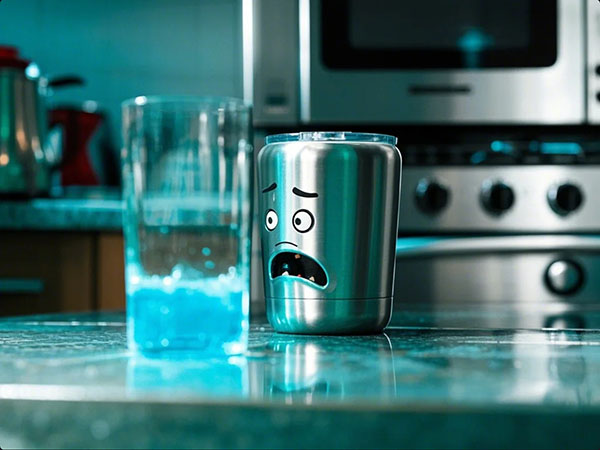Stainless steel vacuum insulated cups have become indispensable drink containers in modern daily life due to their excellent thermal insulation and portability. Whether it's a cup of hot tea in winter or a bottle of iced drink in summer, these cups provide perfectly maintained temperatures. However, while enjoying this convenience, we must recognize that stainless steel vacuum insulated cups are not universally suitable - they may react adversely with certain substances, particularly acidic ones.
As an alloy material, stainless steel primarily consists of iron, chromium, nickel and other elements, with chromium being the key component providing corrosion resistance. Under normal conditions, the chromium layer forms a dense oxide film on the surface that effectively blocks oxygen and moisture erosion, maintaining the material's stability and durability. However, this protective oxide film can be compromised when exposed to acidic substances.
Acidic substances like lemon juice, carbonated drinks, and fruit juices possess strong corrosive properties that can damage the stainless steel's oxide layer, exposing the underlying metal elements. When these exposed metals come into contact with beverages, chemical reactions may occur, potentially causing off-flavors, discoloration, or even the release of harmful substances. The vacuum insulation design exacerbates this issue as the internal pressure accelerates the corrosive effect of acidic substances on the stainless steel.

Furthermore, during prolonged use, frequent cleaning and wear can gradually thin the oxide film and create microscopic cracks. Though invisible to the naked eye, these cracks allow acidic substances to penetrate deeper, intensifying corrosion. Over time, this not only compromises the cup's insulation performance but may also lead to harmful substances leaching into drinks, posing potential health risks.
Therefore, when using stainless steel vacuum insulated cups, we should try to avoid filling them with acidic substances. If you do need to carry acidic beverages such as fruit juices or carbonated drinks, you may opt for containers made of alternative materials like glass bottles, ceramic cups, or specially designed food-grade plastic bottles. To prolong the service life of your stainless steel vacuum insulated cup and maintain its excellent thermal insulation performance, please observe the following precautions: Avoid storing extremely hot or cold beverages for extended periods; prevent severe impacts and surface scratches; clean the cup regularly using appropriate methods; refrain from using harsh detergents or abrasive cleaning tools.
In conclusion, while stainless steel vacuum insulated cups offer great convenience in daily life, we must remain cautious with acidic substances. Only through proper use and maintenance can we ensure these cups remain both safe and durable.